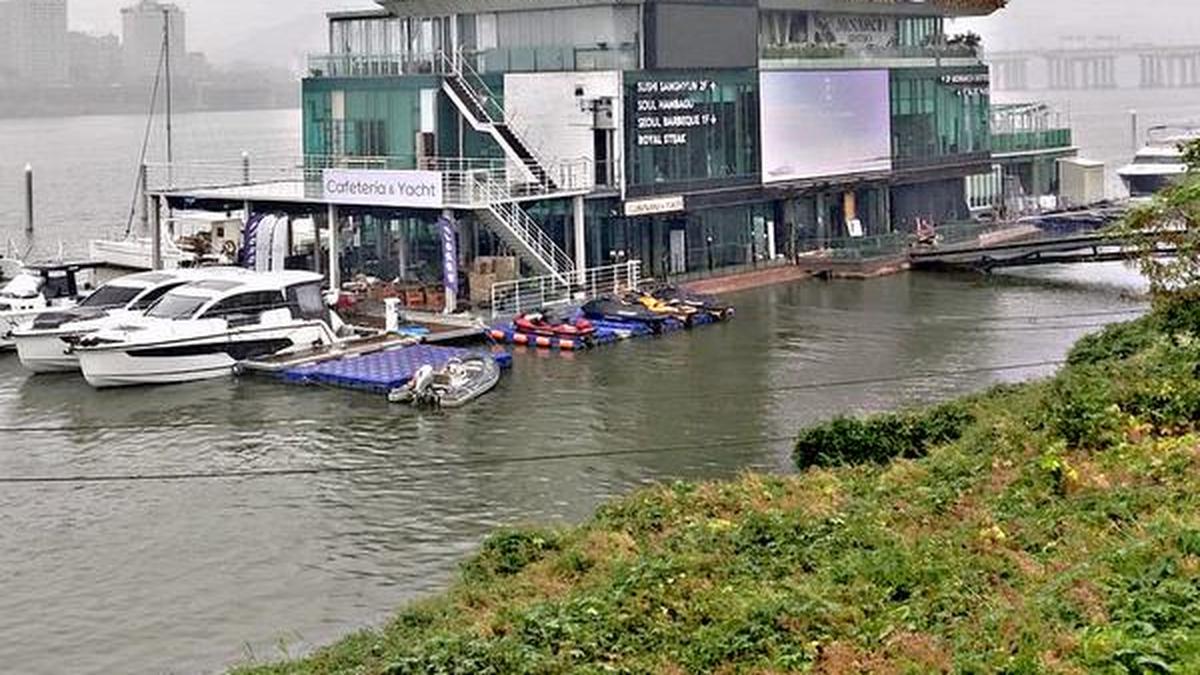
Future Hangang Project: reimagining South Korea’s Han river as lifeline of Seoul city
The Hindu
Discover the transformation of Seoul's Han river into a vibrant recreational destination through the Future Hangang Project.
On the second day of their Seoul visit, the delegation from Telangana visited the Han river front, and learnt about the efforts over the past 15 years to turn the river into a recreational destination for tourists and residents. The Future Hangang Project, as it is called, aims to integrate the river into the city’s urban development by designing and developing public spaces along the river’s 41.2-kilometre watercourse through the city’s core region.
Unveiled in 2023 and set for completion by 2030, the project follows the 2007 Hangang Renaissance Project. As part of that effort, the government developed green spaces along the river and built a 10,000-square-metre floating artificial island on the water body.
Director (General Affairs), Future Hangang Project, Park Kinyong shared that 15 parks were built along the river during the period, along with promenades, walkways and bicycle paths. “About 30-40 years ago, it was only a river flowing through the city. Now it is a recreational and cultural hub of the city. In the next phase, we aim to partner with the private sector, which could bring in investment to the tune of $50 billion into the development of the river,” Mr.Kinyong said.
As part of the project, seven more floating islands are planned on the 1.2-kilometre-wide river, to develop hotels, restaurants, food outlets, convention centres, entertainment hubs and water sporting activities, he said.
Interacting with the media, Telangana’s principal secretary, Municipal Administration & Urban Development, M.Dana Kishore said express highways were developed all along the 74 kilometres of the river flowing through the Seoul Metropolitan City, to make the water body the future lifeline of the city’s economy.
Han river receives treated water from the city’s four sewage and waste water treatment plants, the maintenance of which costs the city about $730 million per annum, Mr. Kinyong said. The river also has six drinking water purification systems upstream.
The delegation, led by Minister Ponguleti Srinivas Reddy and comprising his colleague Ponnam Prabhakar and MP Ch.Kiran Kumar Reddy among others, also met Youngone Corporation chairperson Kihak Sung and vice-chairperson and Chief Executive Officer Rae Eun Sung. They discussed the establishment of Kakatiya Mega Textile Park in Warangal for which an MoU was signed during the previous regime.

Municipal Administration & Urban Development (MA&UD) Minister P. Narayana discussed the construction of the capital city of Amaravati with the senior officials and engineers of the City & Industrial Development Corporation of Maharashtra (CIDCO), at the Andhra Pradesh Capital Region Development Authority (AP-CRDA) office in Vijayawada.










